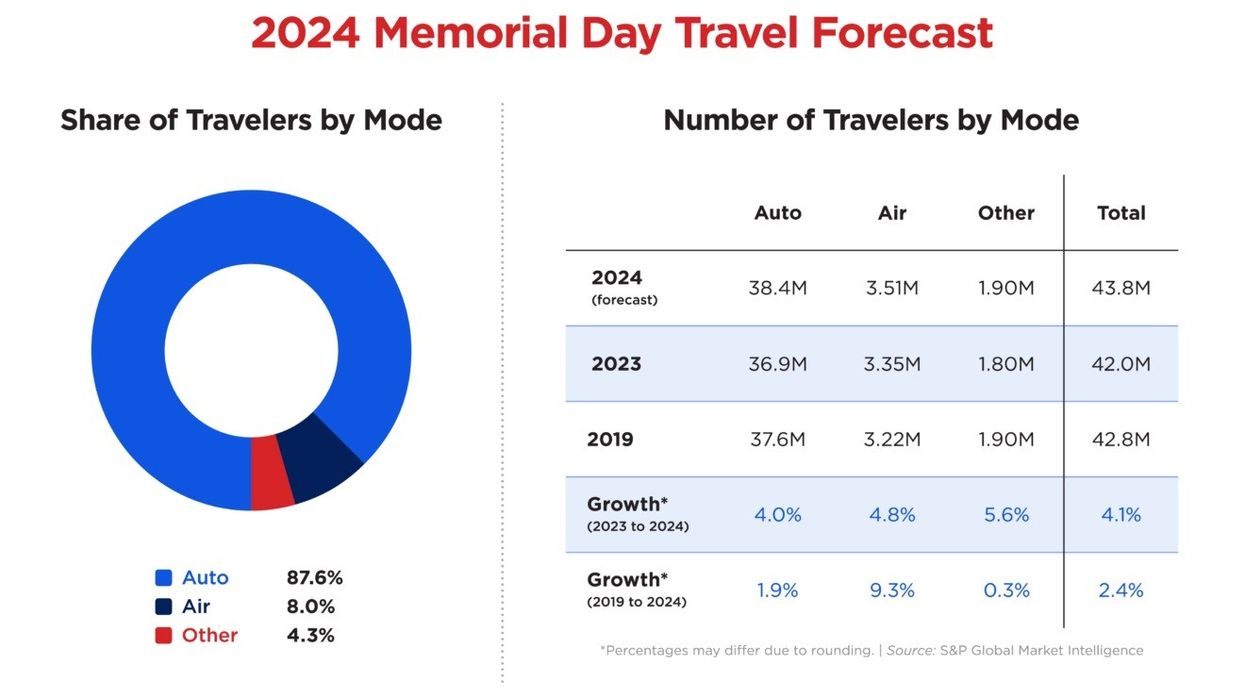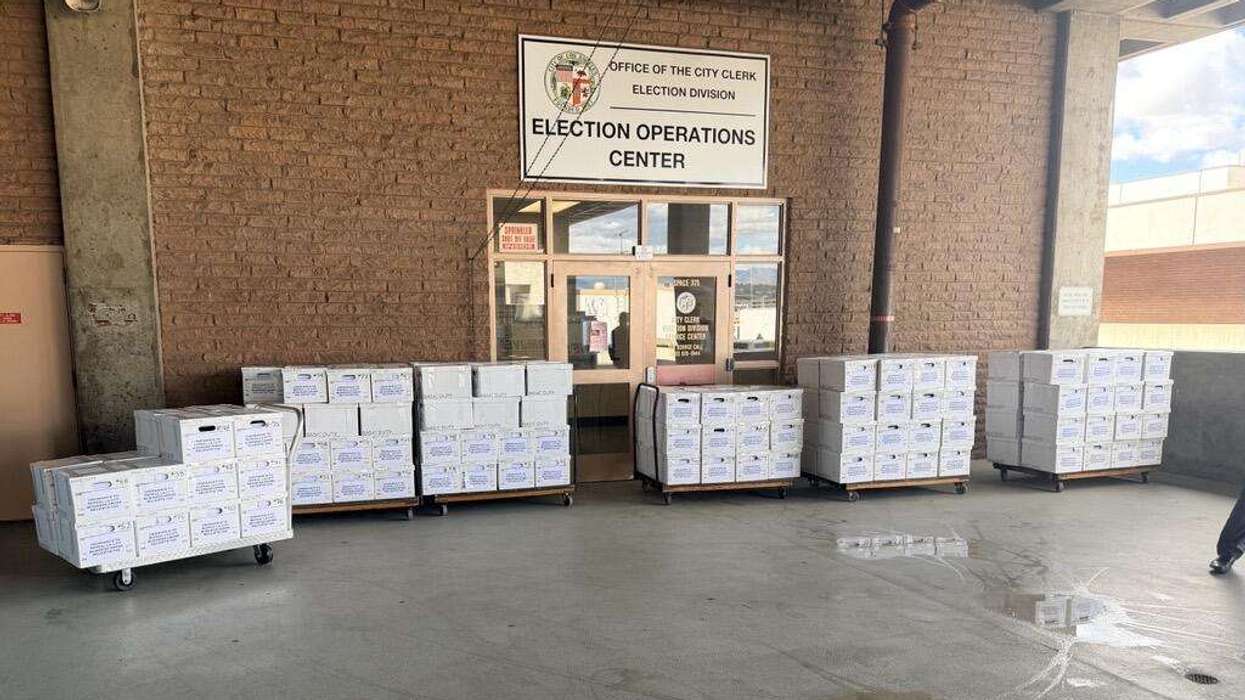APPROXIMATELY 43.8 MILLION Americans will travel 50 miles or more from home, surpassing pre-pandemic figures, according to a forecast by AAA. This represents a 4 percent increase from last year and approaches the 2005 record of 44 million Memorial Day weekend travelers.
A record 38.4 million are expected to drive, marking the highest number since AAA began tracking in 2000.
“We haven’t seen Memorial Day weekend travel numbers like these in almost 20 years,” said Paula Twidale, AAA Travel’s senior vice president. “We’re projecting an additional one million travelers this holiday weekend compared to 2019, which not only means we’re exceeding pre-pandemic levels but also signals a very busy summer travel season ahead.”
The number of drivers this year is up 4 percent compared to last year and 1.9 percent higher than in 2019, the auto club said. Traveling by car is appealing for many people because of the convenience and flexibility it provides.
While gas prices remain stable compared to last year, hovering around $3.57 per gallon, AAA cautioned that they could rise further. Fluctuating oil prices, influenced by geopolitical tensions in the Middle East and Ukraine, could exert pressure on oil markets.
AAA's car rental partner Hertz identified Orlando, Denver, Atlanta, Boston and Las Vegas as the cities experiencing the highest rental demand. The busiest pick-up days are projected to be Thursday, May 23, and Friday, May 24, according to Hertz.
AAA anticipates 3.51 million air travelers this holiday weekend, marking a 4.8 percent increase from last year and a 9 percent surge compared to 2019. This will be the busiest Memorial Day weekend at airports since 2005, when 3.64 million flew for the holiday following the travel industry's post-9/11 rebound. Air ticket prices for Memorial Day weekend are comparable to last year, with AAA booking data indicating a 1 percent to 2 percent increase in prices for domestic flights.
Nearly two million people are expected to travel by other modes of transportation, including buses, cruises, and trains, AAA said. It projects 1.9 million people will take these other modes of transportation, an increase of 5.6 percent compared to last year.
“This category took the biggest hit during the pandemic with fewer people taking public transportation or not cruising at all,” Twidale added. “Now, five years later, we’re back to 2019 numbers. Travel demand has been soaring, and long holiday weekends create the perfect windows for getaways.”
This Memorial Day weekend, travelers are heading to theme parks and entertainment venues in Orlando, New York, Las Vegas and Southern California. Seattle, Anchorage, and Vancouver are popular destinations due to the popularity of Alaska cruises during this season. Additionally, Florida beaches and cruise ports are expected to be bustling.
In December, AAA forecasted approximately 115.2 million travelers would journey 50 miles or more from home during the 10-day year-end holiday travel period. This marked a 2.2 percent increase over the previous year and the second-highest year-end travel forecast since AAA began tracking holiday travel in 2000.






